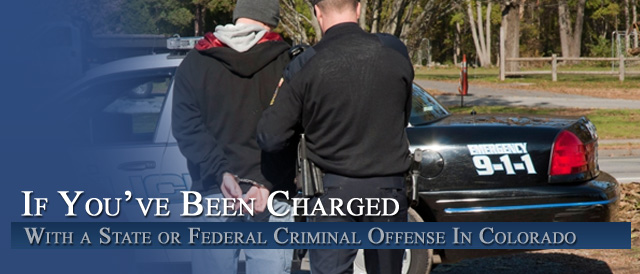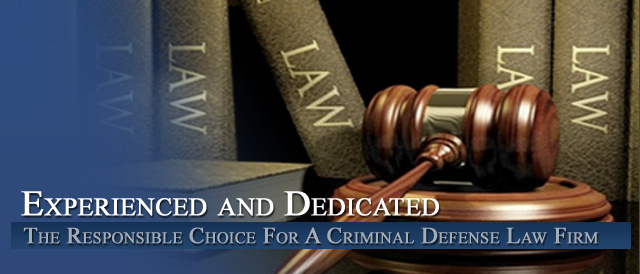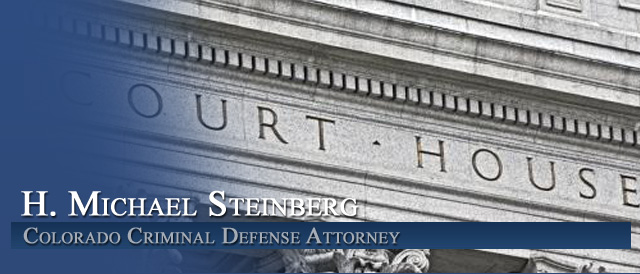




FAQ: Prosecutorial Discretion – The Charging Decision – Overcharging Criminal Cases – and Plea Bargaining in Colorado
Introduction – Colorado criminal law for many years has incorporated so called ” mandatory sentencing laws” that – while taking away the rights of judges to fashion fair and appropriate sentences on a case by case basis – compel defendants “to take a plea” rather than exercise their right to take a case to trial. The reason is the unacceptable result of a guilty verdict by a jury that then mandates a lengthy prison sentence. This practice often is the result of OVERCHARGING the case – so that Defendant’s take a plea to a lower – but legally proper charge.
Overcharging
Overcharging in law, refers to a prosecutorial practice that involves “tacking on” additional charges that the prosecutor knows he cannot prove.
It is used to put the prosecutor in a better plea bargaining position. The term has been defined in different ways.
… “to prosecutors, overcharging is accusing the defendant of a crime of which he is clearly innocent to induce a plea to the ‘proper’ crime.
Defense lawyers identify two types of overcharging.
‘Horizontal’ overcharging is the unreasonable multiplying of accusations against a single defendant. He may be either charged with a separate offense for every technical criminal transaction in which he participated, or the prosecutor may fragment a single criminal transaction into numerous component offenses.
‘Vertical’ overcharging is charging a single offense at a higher level than the circumstances of the case seem to warrant.”
Vertical overcharging is deemed to be the more abusive of the two practices.
DA’s argue that they must overcharge in order to obtain a plea bargain that results in a lower sentence than the prosecutor’s original position, while still obtaining a penalty that promotes public safety, the prosecutor must select an initial charge higher than is “penologically appropriate.”
The American Bar Association guidelines that apply to the Prosecution Function – discourage overcharging, but do not prohibit it. It has been said that rules aimed at combating prosecutorial vindictiveness that force prosecutors to justify any distinct indictments brought subsequent to an initial charge raise the possibility of overcharging.
Here are some recommended prosecuting standards from the State of Ohio for charging and plea dispositions. They are helpful in any attempt to persuade a prosecutor to take action in the form of a fair and reasonable plea bargain – a plea bargain that recognizes that the case was originally OVERCHARGED.
Evidentiary sufficiency.
(1) Decision not to prosecute.
Standard: A prosecuting attorney may decline to prosecute, even though technically sufficient evidence to prosecute exists, in situations where prosecution would serve no public purpose, would defeat the underlying purpose of the law in question, or would result in decreased respect for the law. The decision not to prosecute or divert shall not be influenced by the race, gender, religion, or creed of the suspect.
Commentary:
Examples
The following are examples of reasons not to prosecute which could satisfy the standard.
(a) Contrary to Legislative Intent – It may be proper to decline to charge where the application of criminal sanctions would be clearly contrary to the intent of the legislature in enacting the particular statute.
(b) Antiquated Statute – It may be proper to decline to charge where the statute in question is antiquated in that:
(i) It has not been enforced for many years;
(ii) Most members of society act as if it were no longer in existence;
(iii) It serves no deterrent or protective purpose in today’s society; and
(iv) The statute has not been recently reconsidered by the legislature.
This reason is not to be construed as the basis for declining cases because the law in question is unpopular or because it is difficult to enforce.
(c) De Minimis Violation – It may be proper to decline to charge where the violation of law is only technical or insubstantial and where no public interest or deterrent purpose would be served by prosecution.
(d) Confinement on Other Charges – It may be proper to decline to charge because the accused has been sentenced on another charge to a lengthy period of confinement; and
(i) Conviction of the new offense would not merit any additional direct or collateral punishment;
(ii) The new offense is either a misdemeanor or a felony which is not particularly aggravated; and
(iii) Conviction of the new offense would not serve any significant deterrent purpose.
(e) Pending Conviction on Another Charge – It may be proper to decline to charge because the accused is facing a pending prosecution in the same or another county; and
(i) Conviction of the new offense would not merit any additional direct or collateral punishment;
(ii) Conviction in the pending prosecution is imminent;
(iii) The new offense is either a misdemeanor or a felony which is not particularly aggravated; and
(iv) Conviction of the new offense would not serve any significant deterrent purpose.
(f) High Disproportionate Cost of Prosecution – It may be proper to decline to charge where the cost of locating or transporting, or the burden on, prosecution witnesses is highly disproportionate to the importance of prosecuting the offense in question. The reason should be limited to minor cases and should not be relied upon in serious cases.
(g) Improper Motives of Complainant – It may be proper to decline charges because the motives of the complainant are improper and prosecution would serve no public purpose, would defeat the underlying purpose of the law in question, or would result in decreased respect for the law.
(h) Immunity – It may be proper to decline to charge where immunity is to be given to an accused in order to prosecute another where the accused information or testimony will reasonably lead to the conviction of others who are responsible for more serious criminal conduct or who represent a greater danger to the public interest.
(i) Victim Request – It may be proper to decline to charge because the victim requests that no criminal charges be filed and the case involves the following crimes or situations:
(i) Assault cases where the victim has suffered little or no injury;
(ii) Crimes against property, not involving violence, where no major loss was suffered;
(iii) Where doing so would not jeopardize the safety of society.
Care should be taken to insure that the victim’s request is freely made and is not the product of threats or pressure by the accused.
The presence of these factors may also justify the decision to dismiss a prosecution which has been commenced.
(1) Notification
The prosecutor is encouraged to notify the victim, when practical, and the law enforcement personnel, of the decision not to prosecute.
(2) Decision to prosecute.
Standard:
Crimes against persons will be filed if sufficient admissible evidence exists, which, when considered with the most plausible, reasonably foreseeable defense that could be raised under the evidence, would justify conviction by a reasonable and objective fact finder.
Crimes against property/other crimes will be filed if the admissible evidence is of such convincing force as to make it probable that a reasonable and objective fact finder would convict after hearing all the admissible evidence and the most plausible defense that could be raised.
The decision to prosecute or use diversion shall not be influenced by the race, gender, religion, or creed of the respondent.
(3) Selection of Charges/Degree of Charge
(a) The prosecutor should file charges which adequately describe the nature of the respondent’s conduct. Other offenses may be charged only if they are necessary to ensure that the charges:
(i) Will significantly enhance the strength of the state’s case at trial; or
(ii) Will result in restitution to all victims.
(b) The prosecutor should not overcharge to obtain a guilty plea. Overcharging includes:
(i) Charging a higher degree;
(ii) Charging additional counts.
This standard is intended to direct prosecutors to charge those crimes which demonstrate the nature and seriousness of a respondent’s criminal conduct, but to decline to charge crimes which are not necessary to such an indication. Crimes which do not merge as a matter of law, but which arise from the same course of conduct, do not all have to be charged.
(4) Police Investigation
A prosecuting attorney is dependent upon law enforcement agencies to conduct the necessary factual investigation which must precede the decision to prosecute. The prosecuting attorney shall ensure that a thorough factual investigation has been conducted before a decision to prosecute is made. In ordinary circumstances the investigation should include the following:
(a) The interviewing of all material witnesses, together with the obtaining of written statements whenever possible;
(b) The completion of necessary laboratory tests; and
(c) The obtaining, in accordance with constitutional requirements, of the suspect’s version of the events.
If the initial investigation is incomplete, a prosecuting attorney should insist upon further investigation before a decision to prosecute is made, and specify what the investigation needs to include.
(5) Exceptions
In certain situations, a prosecuting attorney may authorize filing of a criminal complaint before the investigation is complete if:
(a) Probable cause exists to believe the suspect is guilty; and
(b) The suspect presents a danger to the community or is likely to flee if not apprehended; or
(c) The arrest of the suspect is necessary to complete the investigation of the crime.
In the event that the exception to the standard is applied, the prosecuting attorney shall obtain a commitment from the law enforcement agency involved to complete the investigation in a timely manner. If the subsequent investigation does not produce sufficient evidence to meet the normal charging standard, the complaint should be dismissed.
(6) Investigation Techniques
The prosecutor should be fully advised of the investigatory techniques that were used in the case investigation including:
(a) Polygraph testing;
(b) Hypnosis;
(c) Electronic surveillance;
(d) Use of informants.
(7) Prefiling Discussions with Defendant
Discussions with the defendant or his or her representative regarding the selection or disposition of charges may occur prior to the filing of charges, and potential agreements can be reached.
(8) Plea dispositions:
Standard
(a) Except as provided in subsection (2) of this section, a respondent will normally be expected to plead guilty to the charge or charges which adequately describe the nature of his or her criminal conduct or go to trial.
(b) In certain circumstances, a plea agreement with a respondent in exchange for a plea of guilty to a charge or charges that may not fully describe the nature of his or her criminal conduct may be necessary and in the public interest. Such situations may include the following:
(i) Evidentiary problems which make conviction of the original charges doubtful;
(ii) The respondent’s willingness to cooperate in the investigation or prosecution of others whose criminal conduct is more serious or represents a greater public threat;
(iii) A request by the victim when it is not the result of pressure from the respondent;
(iv) The discovery of facts which mitigate the seriousness of the respondent’s conduct;
(v) The correction of errors in the initial charging decision;
(vi) The respondent’s history with respect to criminal activity;
(vii) The nature and seriousness of the offense or offenses charged;
(viii) The probable effect of witnesses.
(c) No plea agreement shall be influenced by the race, gender, religion, or creed of the respondent. This includes but is not limited to the prosecutor’s decision to utilize such disposition alternatives as the Special Sex Offender Disposition Alternative, the Chemical Dependency Disposition Alternative, and manifest injustice.
(9) Disposition recommendations:
Standard
The prosecutor may reach an agreement regarding disposition recommendations.
The prosecutor shall not agree to withhold relevant information from the court concerning the plea agreement.
Other Articles of Interest:
- If You Are Charged with a Federal Crime
- Mistrials in Colorado
- Federal Witness Immunity II
- Plea Bargaining
- Plea Bargaining












